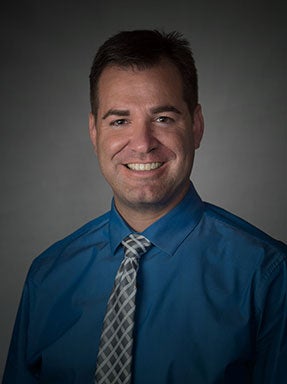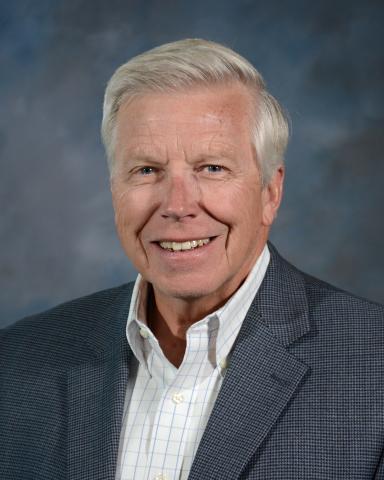Current Students
Media Relations Manager

Jon.Stone@du.edu
303 871-2781
Never forget. That’s the only wish Patrick Mills, a retired navy captain, has of everyone today.
“I hope that we don’t forget. A lot of people were killed on 9/11, and they had nothing to do with anything. They were just going to work, including those people at the Pentagon.”
Mills, now a doctoral student in DU’s Morgridge College of Education, was one of about 20,000 people working in the Pentagon on that fateful day 17 years ago. After flying for 20 years, he was assigned to serve as a military assistant to the secretary of defense, first William Cohen and later Donald Rumsfeld.
He remembers standing outside a congressional breakfast on the morning of Sept. 11, 2001. Rumsfeld was speaking to 12 congressional representatives about changing their focus from post-Cold War era concerns to what he considered an asymmetric threat, meaning an insurgency or resistance movement. During the meeting, a note was delivered to Mills to give to the secretary. It read: “light civil hits twin towers.” The meeting immediately ended, and about 30 minutes later it became clear just how big the story was.
“The building shook, which was very unusual,” Mills recalls. “Then almost immediately, through the ventilation system, you could smell and taste it; it was an acrid smell.”
Hijackers had crashed American Airlines flight 77 into the western side of the Pentagon. Mills and the secretary were located in offices on the opposite end of the building.

“I see Secretary Rumsfeld, who at that time was 68 years old, and he was running from his office with the defense protective service guards chasing him. They wanted to evacuate him, but he wanted to go to the crash site and pull victims out,” Mills says. “You would have been very proud of your military that day.”
Mills says that for the next few days only critical personnel were required at the Pentagon, but so many others wanted to be there to help determine what had happened, who had attacked and what the response should be.
Mills stayed at the Pentagon until the next spring, when he volunteered to join the Navy fleet in the Middle East for a six-week deployment. Afterward, he was transferred to Colorado-based NORAD in Cheyenne Mountain, where he remained until retiring in 2006.
Now at the age of 62, Mills is only months away from receiving his doctorate in education.
“You’d be surprised at what some retired military are doing,” he says. It’s hard to take off your uniform and go play golf. You still feel like you have a draw to some sense of mission.”
He says his new mission is working on education reform and tackling the challenges facing K-12 public education.
“I’m focusing on the idea of leadership and impact on quality as a measurable, not just as hyperbole,” Mills says. “There’s plenty of evidence [in] Colorado and nationwide that our kids are not meeting the standards for numeracy and English language arts. It’s a quality problem, and we deal with quality problems all the time in the military and in industry. Those are solvable problems.”
